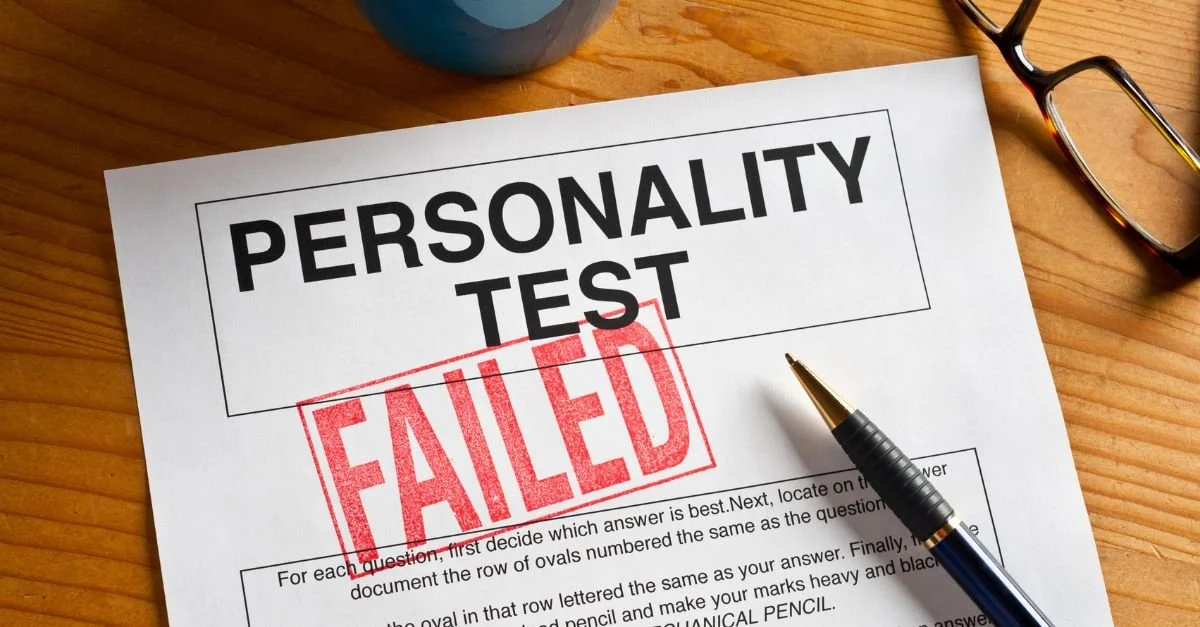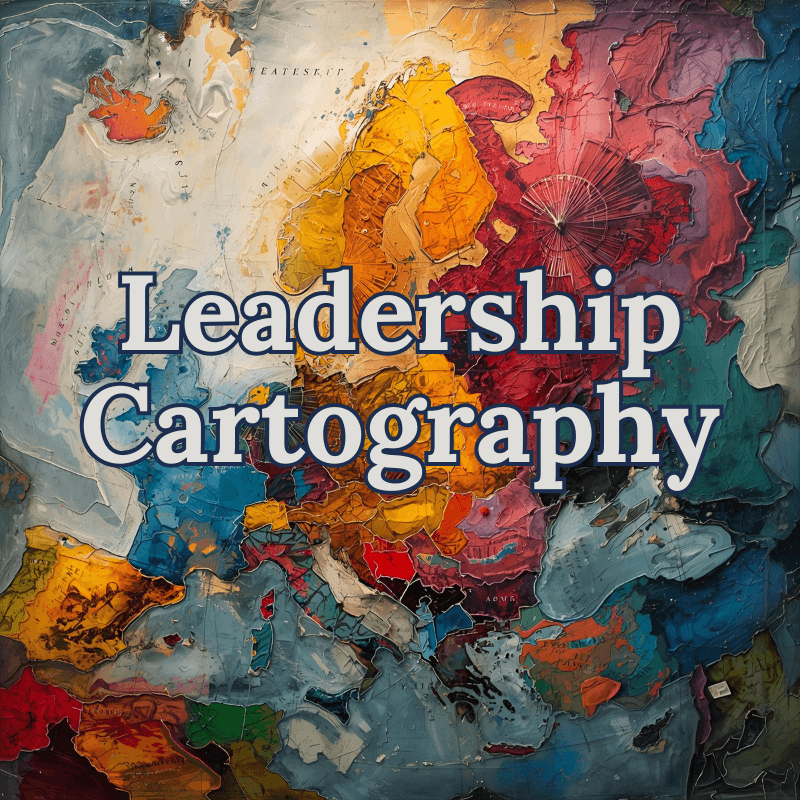Why Personality Tests Fail New Managers (And What Actually Works Instead)
Tests oversimplify identity. Real leadership emerges from context, patterns, and the conditions shaping behavior at work.
Your team took the personality test. Now what? Here's why knowing someone is an "ENFP" doesn't help you manage them—and what actually works instead.
The email lands in your inbox with a cheerful subject line: "Team Personality Assessment Results - Let's Build Better Collaboration!"
You open the attachment. There's Sarah: ENFP. Mike: ISTJ. Jordan: High D, High I. And you? Well, you're apparently a "Steady Influencer" or "The Advocate" or some other label that sounds impressive but tells you absolutely nothing about how to handle next week's difficult conversation with Mike about his missed deadlines.
Sound familiar?
If you're a new manager who's been handed personality test results and expected to magically become a better leader, you're not alone. And if you're wondering how knowing someone's four-letter code is supposed to help you navigate real management challenges, you're asking exactly the right question.
Why Most Managers Get Stuck with Personality Tests
Here's what typically happens: You get promoted to manager. HR schedules a team-building session. Everyone takes a personality assessment. You get a colorful report with charts, graphs, and descriptions that sound like horoscopes.
Then you're sent back to your desk with a folder full of "insights" and zero practical guidance on how to use them.
The problem isn't the tests themselves—it's what happens next.
Most personality assessments give you labels without context, descriptions without direction, and categories without actionable next steps. You learn that Sarah is "spontaneous and enthusiastic" but not how to help her meet deadlines. You discover Mike "values structure and tradition" but not how to motivate him when processes change.
What you really need isn't more labels—it's a framework for understanding how people actually work and what they need from you as their manager.
Why Most Personality Tests Fail in Real Management Situations
They Create Static Categories
Personality tests suggest people are fixed types who always behave the same way. But in real management situations, the same person might need different approaches depending on the project, their stress level, their experience with the task, or what else is happening in their life.
Sarah might be "spontaneous and creative" in brainstorming sessions but crave detailed structure when learning new software. Mike might "prefer routine" in his core responsibilities but welcome creative challenges in areas where he feels confident.
They Focus on What Instead of How
Knowing someone is a "High D" tells you they're direct and results-oriented. But it doesn't tell you:
How they prefer to receive feedback
What motivates them when they're struggling
How they process conflict or stress
What support they need to do their best work
They Ignore Context and Relationships
The most important factor in team dynamics isn't individual personality types—it's how people interact with each other and respond to different management approaches.
The tension between Sarah and Mike might have nothing to do with their Myers-Briggs types and everything to do with unclear role definitions, competing priorities, or different assumptions about communication norms.
The Real Cost of Personality Test Dependence
When managers rely too heavily on personality tests, several problems emerge:
Analysis Paralysis
You spend more time trying to decode personality types than having actual conversations with your team members. Instead of asking Sarah what support she needs, you're consulting her DISC profile.
Excuse Making
Personality types become explanations for poor performance instead of starting points for development. "Mike missed the deadline because he's an ISTJ who doesn't like change" becomes a reason rather than a problem to solve.
Reduced Curiosity
Once you've labeled someone, you stop being curious about their actual needs, motivations, and challenges. The four-letter code becomes a shortcut that prevents deeper understanding.
False Confidence
You feel like you understand your team because you know their types, but you're operating on simplified assumptions rather than real insight into how they work best.
What Actually Works: Leadership Identity Over Personality Type
Instead of asking "What personality type is this person?" the more useful question is: "What does this person need from me as their leader right now?"
This shifts you from categorizing people to understanding them—and from applying generic frameworks to developing genuine leadership intuition.
The Framework That Actually Helps
Rather than personality types, focus on these three leadership fundamentals:
1. Recognition Patterns How does this person know they're doing good work? Some people need public acknowledgment, others prefer private feedback, and others just want to see results.
2. Communication Preferences How do they prefer to receive information and give updates? Some want regular check-ins, others need space to work independently, and others prefer written communication they can process at their own pace.
3. Development Motivators What energizes them to grow and improve? Some are driven by new challenges, others by mastery of existing skills, and others by opportunities to mentor or lead.
These aren't personality categories—they're dynamic preferences that can change based on the situation, their experience level, and their current goals.
A Better Approach: The Leadership Identity Framework
Instead of categorizing your team members, develop your own leadership identity. This means understanding:
Your Natural Management Style
How do you instinctively approach conflict, feedback, and decision-making?
What leadership behaviors feel authentic versus forced?
Where do you excel, and where do you need frameworks to support you?
Your Team's Individual Needs
What specific support does each person need to succeed?
How do they prefer to communicate and receive feedback?
What motivates them and what creates stress?
Your Adaptive Range
How can you flex your natural style to meet different team members' needs?
What tools and frameworks help you manage situations outside your comfort zone?
When do you need to bring in other people or resources?
Essential Do's and Don'ts for Moving Beyond Personality Tests
✅ Do:
Ask direct questions: "How do you prefer to receive feedback?" is more useful than consulting their MBTI type
Observe patterns over time: Notice how people actually behave in different situations, not just what their assessment says
Focus on work impact: Address performance and collaboration issues directly rather than attributing them to personality types
Stay curious: Keep learning about each team member's evolving needs and preferences
Develop your own leadership toolkit: Build frameworks that help you adapt to different people and situations
❌ Don't:
Use types as excuses: "She's just not detail-oriented because she's an ENFP" doesn't solve the accuracy problem
Assume consistency: People's needs and preferences can change based on experience, stress, and context
Make types public: Avoid labeling team members in ways that might limit how others see them
Replace conversation with assessment: Tests can't substitute for actual relationship-building and communication
Box yourself in: Don't let your own type become an excuse for avoiding certain leadership challenges
Troubleshooting Common Personality Test Pitfalls
"The team is obsessed with their types and uses them to explain everything." Redirect conversations to specific behaviors and outcomes: "I understand you identify as an introvert, but I need to understand what support would help you contribute more in team meetings."
"I don't know how to manage someone whose type is completely different from mine." Focus on their actual needs rather than your type differences: "What communication style helps you do your best work?" Often the answer has nothing to do with personality types.
"HR requires us to use personality assessments for team development." Use them as conversation starters, not conclusions: "The assessment suggests you prefer structured environments. Can you tell me more about what that looks like in practice?"
"I find myself making assumptions based on people's types." Replace type-based assumptions with specific questions: Instead of "High D personalities like direct feedback," ask "How do you prefer to receive feedback about your performance?"
Your Real Leadership Development Path
The goal isn't to become an expert at reading personality types—it's to become skilled at reading actual people and adapting your leadership approach to help them succeed.
This means:
Having real conversations instead of consulting assessment results
Building relationships based on observed needs rather than predicted preferences
Developing your own leadership range rather than trying to manage everyone the same way
Creating systems that work for diverse working styles without requiring labels
The strongest managers aren't the ones who can recite their team's DISC profiles—they're the ones who know how to have the conversation that moves each person forward.
Transform Your Leadership Through Real Understanding
Personality tests promise a shortcut to understanding your team, but the best managers know there isn't one. Real leadership development comes from genuine curiosity about the people you lead and the willingness to adapt your approach based on what actually works.
When you stop trying to decode personality types and start focusing on leadership identity—yours and theirs—you build the skills that actually matter: observation, adaptation, and authentic relationship-building.
The shift isn't from bad assessments to good assessments—it's from categorizing people to understanding them.
Ready to discover your natural leadership identity and get tools designed for how you actually lead? Take the free Leadership Pathway Explorer quiz to uncover your authentic management style and access frameworks that work with your strengths, not against them.
Looking for practical leadership tools that go beyond personality types? The Manager's Map Drawer delivers monthly frameworks for real management challenges—from difficult conversations to team development to performance issues. Get your monthly management toolkit here.



